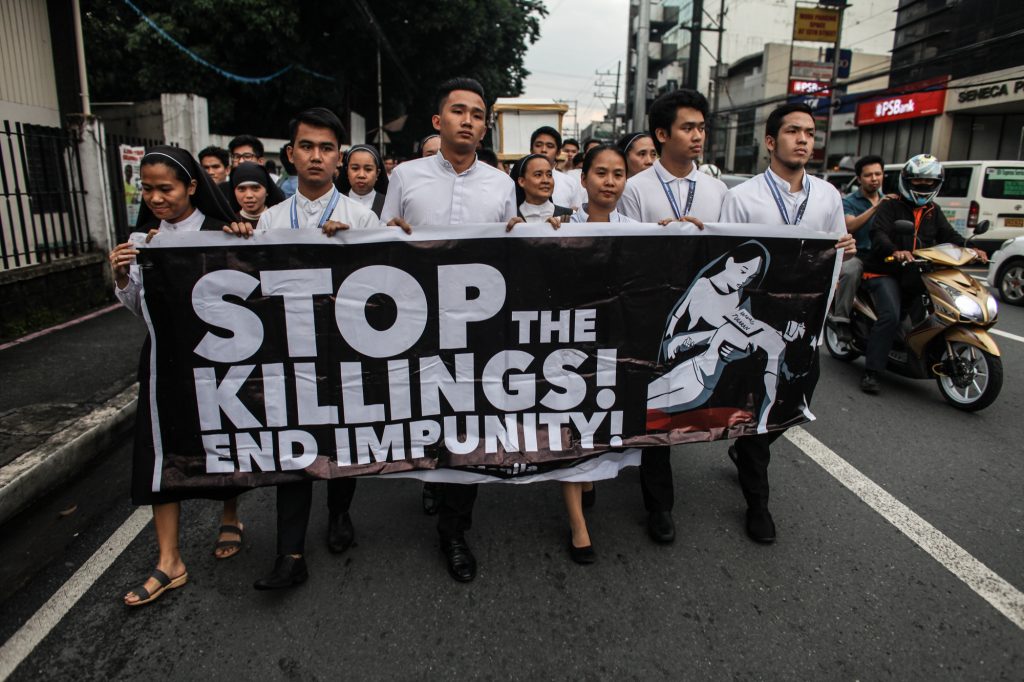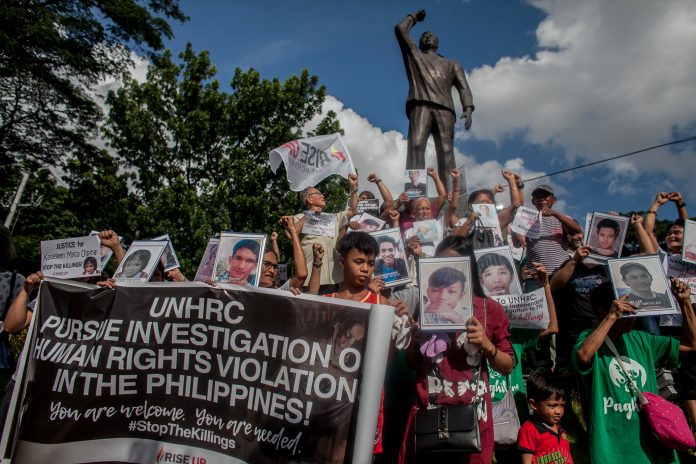The UN High Commissioner on Human Rights, Michelle Bachelet, issued a strong call for a deeper, independent probe into the human rights situation in the Philippines.
Bachelet made the call during the 44th session of the UN Human Rights Council in Geneva, Switzerland, on June 30.
In the same occasion, she also urged Philippine President Rodrigo Duterte not to sign the proposed anti-terrorism law, saying the measure further blurs “important distinctions between criticism, criminality, and terrorism.”
The bill will lapse into law 30 days after Congress submitted it to the president for his signature. The bill was sent to Duterte on June 9.
In her report to the UN body, Bachelet cited the drug-related killings in the Philippines to back claims of systematic, widespread, and ongoing human rights abuses in the country.
The UN official also slammed arbitrary detentions and torture, and what human rights groups described as increasing attacks on freedom of expression and the press.
While western democracies backed Bachelet’s report and recommendations, China, Russia, the Middle Eastern bloc in the UN, members of the Association of Southeast Asian Nations, and Latin American countries thumbed down the call for using international accountability mechanisms on the Philippines.
Bachelet had urged the human rights body to exercise its prevention mandate, saying that it is “not enough to argue that the government’s heavy-handed policies remain popular in the country.”
She noted that because human rights abuse victims “tend to be from lower economic classes and relatively disempowered communities, there must be a stronger imperative to ensure their protection.”
UN council members, like Iceland, which initiated in July 2019 the resolution that called for a report, the United Kingdom, Finland, Belgium, Liechtenstein, and Canada supported Bachelet’s report.
They urged the Philippines to allow into the country international rights experts and UN special rapporteurs.
Austria expressed concern over reported intimidation of independent news sources in the Philippines and “what appear to be politically-motivated charges against journalists.”
The United Kingdom said it would continue to support human rights defenders, land rights activists, and journalists in the Philippines and urged reforms for media to operate without fear of reprisal
Russia, however, gave a blistering response, accusing Bachelet of politicizing human rights. Its representative said the report “discredits the council itself.”
He said political actors in countries must be left alone to “resolve human rights issues themselves,” adding that the United Nations should “assist only when requested and there is consent.”
China warned against using country specific resolutions to pressure governments and urged Bachelet to “stick to principles of impartiality and objectivity” and “do away with prejudice and pre-judgement.”

Philippine Justice Secretary Menardo Guevarra, in a reaction from Manila, said the Duterte government considers human rights a “fundamental national interest.”
Citing the safety and security of Filipinos as paramount rights, Guevarra described the government’s commitment as “firm and unwavering.”
Duterte, who ran and won on a campaign promise of a drug-free Philippines, “has discharged this mandate faithfully,” said Guevarra.
“After four years, the president and his anti-drug campaign enjoy the widespread and broad support of our people,” he added.
“As a democracy, we must continue on a path that has the public’s unflagging support,” said the Justice secretary.
He said claims that there is impunity or near impunity in the country “have no anchor in a system that provides every avenue to examine, establish and pursue a claim of wrong doing by a state actor.”
Guevarra noted that the work of the country’s Commission on Human Rights, an independent monitoring body, negates the need for an independent, investigative mechanism, including the one made before the International Criminal Court.
The Philippines left the ICC in 2019 after ICC prosecutor Fatou Bensouda moved to examine the thousands of alleged extrajudicial killings in the context of the country’s “war” against drugs.
Human rights commissioner Karen Lucia Gomez-Dumpit, however, said the government “must accept that the killings are widespread and systematic.”
She said the “over-reliance on a strong-arm approach has largely contributed to the pervading culture of impunity.”
“To improve the human rights situation, the Philippines must change course, and translate UN recommendations into concrete actions,” said Gomez-Dumpit.
She also urged the government “to allow full cooperation” of the police and other law enforcement agencies with the human rights body for the probe into the killings.









